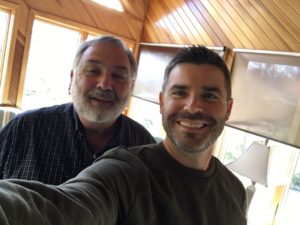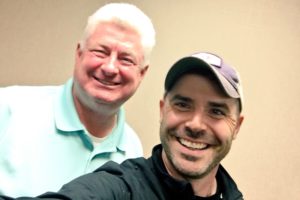Taking a relaxed approach to playing an instrument is always the correct way. That was a bold statement! It takes practice and diligence in your thoughts to remind yourself to stay comfortable and free of tension. Every professional player I know would agree and teach the same things to young musicians.
When teaching young players, we must keep in mind they see things a bit more black and white. Less experienced players are usually looking for an easy way or a faster way to excel. Younger players also have a harder time processing the “why” and “how” and need a bit more time and education to train the correct approach. One example of a breathing aid that exists is the “Breathing Gym,” a book that is widely respected by music educators. Some music educators use these ideas as the only consistent/daily ways for kids to breathe. The only problem with this is that it is a training/workout book for expanding the breathing capacity, and for thought process for using air at different volumes. It works out the body to prepare for correct breathing habits. I have seen students that are part of ensembles that use this approach regularly, and the students breathe tight and tense, because it is not coupled with the correct relaxed approaches after this training. Much more explanation is needed for young players to understand what this book is designed for, and “why” and “how” the exercises should be implemented.
Just a few simple thoughts are enough for students to excel at breathing. If you are using a book or series of exercises to “workout” the body and breathing capacity, remember to couple that with correct thoughts:
- Stay Relaxed! Always relax your mind and body when you enter into playing a wind instrument. Just like doing any sport at a high level, the ones who are the most successful look like they are barely working. They have trained themselves to keep the mind at a confident consistent rest while still doing the hard work.
- “OH” shaped breath If we are trying to convince and train young musicians to breathe tension free, it makes most sense to take a breath with an open mouth. When closing the mouth and breathing in, tension tends to sneak in. Use an open mouth and be as inaudible as possible.
- Pendulum breath There are so many analytical philosophies about how the air comes in, where it goes and what expands. Simply put, and making it easier for young musicians, the air goes past the chest wraps around and comes back up through the chest on the way out. Relaxed stomach muscles and breathing the same in as you do out. Breathe for the dynamic you are playing. Relaxed in and relaxed out.
- The red zone In order to stay relaxed on the breath out, don’t let yourself get to what I call the “red zone”. The redone is simply the area where you begin to tighten up and the stomach muscles are no longer relaxed. When this happens, it is time for another relaxed breath.
There is no substitute for the right way.
There are tools out there that can help train students in certain areas, but simple, diligent and correct thoughts over time will help young musicians develop the skills to be successful over a long period of time. Be conscious of the techniques you are implementing and the reasons you are implementing them.
Research, contemplate and make educated decisions from talking to successful professional musicians in the field. This topic is the first session of Brass Academy. I am passionate in bringing this instruction to young musicians to help them reach their full potential.



